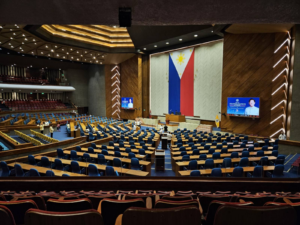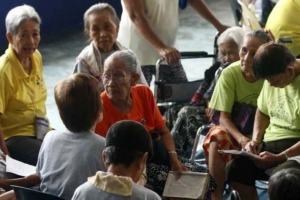
MANILA – The Department of Health (DOH) issued a call to the public to avail themselves of vaccinations, highlighting the increasing cases of measles, rubella, and pertussis. They urged individuals to receive their free measles, mumps, and rubella (MMR) vaccines, as well as tetanus, diphtheria, and pertussis (Tdap) vaccines at local health centers.
The DOH emphasized that its Public Health Emergency Operations Center (PHEOC) is ramping up efforts to contain the measles outbreak. This includes vaccination drives, providing micronutrient supplementation, engaging with communities, and enhancing risk communication.
The World Health Organization (WHO) previously expressed concern over the swift spread of measles, reporting over 306,000 cases worldwide last year—an alarming 79% surge from 2022.
In the Philippines, there have been 569 recorded cases of measles and rubella as of February 24. With the exception of Bicol and Central Visayas, all regions have observed an uptick in cases over the past month. Between February 11 and 24 alone, 163 new cases were reported, reflecting a 3% increase compared to the preceding two weeks.
“Epidemiologic profile shows that those under five years of age and who are unvaccinated are the most affected,” the DOH noted.
Measles, commonly referred to as “tigdas” locally, is a highly contagious illness primarily affecting children. Its symptoms include high fever, cough, runny nose, and a distinctive body rash.
Rubella, also known as German measles, is caused by a different virus from measles and is similarly contagious. It usually results in a mild sickness characterized by symptoms like low fever, sore throat, and a rash.
Both diseases spread easily through airborne transmission when an infected individual coughs or sneezes. However, the MMR vaccine is effective in preventing both measles and rubella.
The Department of Health (DOH) aims to immunize at least 90% of the high-risk population, particularly children aged six months to 10 years, to curb the spread of measles. As of 2022, measles immunization coverage stood at 69%.
Experts attribute the surge in vaccine-preventable diseases to gaps in vaccination coverage, inadequate disease surveillance, and increased mobility following the easing of COVID-19 restrictions.
In the Philippines, the controversial Dengvaxia issue, which became highly politicized, severely undermined public trust in government immunization efforts. This controversy not only cast doubt on the efficacy of the anti-dengue vaccine but also instilled skepticism regarding other vaccines designed to safeguard against life-threatening illnesses.
Rise in pertussis cases
Pertussis, commonly known as whooping cough, is another disease preventable through vaccination that is experiencing a resurgence.
According to the Department of Health (DOH), there have been 453 reported cases of pertussis in the first 10 weeks of 2024.
During the peak of the pandemic, the Philippines experienced a significant decrease in pertussis cases, with only seven cases in 2021 and two cases in 2022 recorded during the first 10 weeks. In comparison, there were 52 cases in 2019 and 27 cases in 2020 during the same period.
On Thursday, the local government of Quezon City declared a pertussis outbreak. Since the beginning of 2024, the city has reported 23 cases of pertussis, including four infant fatalities.
“We will do whatever it takes to curb the spread of this disease. We are mobilizing our own resources towards procuring the needed vaccines to keep our children safe, until such time as the DOH supply arrives,” Quezon City Mayor Joy Belmonte said.
Pertussis typically manifests flu-like symptoms such as mild fever, runny nose, and cough for a duration of seven to 10 days following exposure. In typical cases, the cough evolves into a distinctive hacking cough.
Although antibiotics can effectively treat pertussis, vaccination is strongly advised for prevention.















